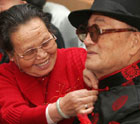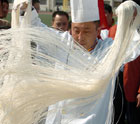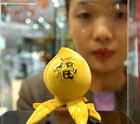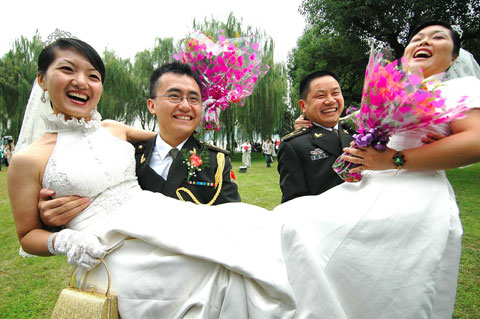"Twins! Twins! A male and a female!"
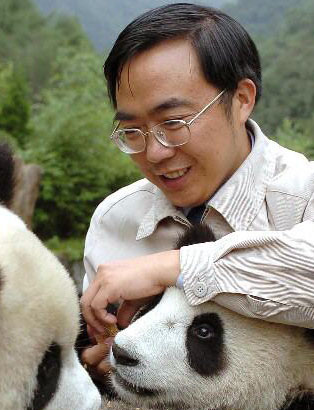
People yelled these words cheerfully when a nine-year-old giant panda Princess gave birth to twin cubs at a panda research center on August 18, 2007, in Southwest China's Sichuan Province.
Taking off the glasses and rubbing his tired eyes, Zhang Hemin felt relieved after a sleepless night.
Zhang Hemin, chief of the Wolong Nature Reserve Administration, is renowned as the "father" of pandas. He was elected as a delegate to the 17th National Congress of the Communist Party of China (CPC) on May 16 by a strong majority.
Zhang graduated in biology from Sichuan University in 1983, when giant pandas were facing a food crisis as the arrow bamboo was dying in many areas. The slow-maturing plant takes a decade to grow, worrying panda carers. Zhang went straight to work at Wolong and began rescuing starving pandas.
Zhang recalled, "At that time Wolong had only ten pandas, so work on their propagation and research was very tough."
In 1987, Zhang was sent to the University of Idaho in the US to gain a masters' degree on nature reserve management. He learned about diseases, population control and habitat changes from America.
Two years later, Zhang didn't stay in the US with his wife but came back to China to lead a breakthrough on panda propagation.
Though the World Wildlife Fund dispatched foreign experts to China many times, only one panda was born in ten years and died at the age of two.
In 1992, Zhang saw the most encouraging moment when a panda successfully gave birth to a cub, which was also the first successful artificial birth at Zhang's research center. However, 180 days later, the cub died, leaving Zhang almost desperate.
Experiencing failure after failures, finally Zhang recognized that the biggest obstacle to propagation is pandas' emotion.
He requested the staff taking care of pandas communicate with them while feeding. He said, "Pandas are similar to humans that once they feel nervous they will secrete irregularly and fall sick."
Pandas are cute but are still wild animals. One day in 1995, a two-year-old panda, Yingying, bit Zhang on the lower leg and left him in hospital for three months.
Zhang didn't punish the panda at all. At present, Yingying is the star mother of the center, giving birth to 15 cubs with seven twins.
From 1992 to 2006, artificial feeding pandas increased from 10 to 119 in Wolong Giant Panda Research and Conservation Center. Among them, 94 were propagated artificially, accounting for about 50 percent of all pandas in captivity in the world.
In December 2001, Zhang was named chief of the Wolong Nature Reserve Administration. He adjusted measures to local conditions, encouraging local people to plant bamboos and setting up a fair trade system. Local people became well off day by day, and arable land was returned to bamboo forest.
Now, Zhang's strongest wish is to build a propagation center capable of holding 300 pandas in Wolong with an investment of 200 million yuan in seven years.







